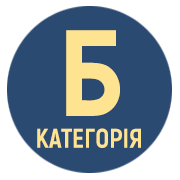THE MAIN TENDENCIES OF THE PROCESS OF TRANSFORMATION OF STATE AND POLITICAL INSTITUTIONS IN UKRAINE UNDER THE CONDITIONS OF THE RUSSIAN-UKRAINIAN WAR
DOI:
https://doi.org/10.32782/2786-9385/2024-3-4Keywords:
national security, political transformation, political institutions, interest groups, interest, representation, political processes, democratic transformation, political communication, interaction with government and administration, institutionalisation, political and legal regulation, stabilisation of the political systemAbstract
The article reveals the essence of the theoretical and methodological foundations of the study of the problems of transformation of modern political and state institutions; clarifies and outlines the main stages of post-communist transformation as a new type of process of socio-political transformations; identifies the current problems of state-building in 2014–2022 in the context of russian aggression. It is noted that in modern conditions, transformation processes in Ukraine are taking place in the context of russian aggression. At present, the processes of transformation of the political system, state-building, building a political nation and a full-scale war on the territory of the Ukrainian state are taking place simultaneously. Based on the above and the need to choose an effective model of state development and to promote the formation of civil society, there is an urgent need to study the problems of transformation of modern political and state institutions in Ukraine. The authors note that most of the internal political problems of modern Ukraine are produced by the political elite, which is unable to respond in a timely manner to the challenges of the times, and uses financial and media assets of the state for further enrichment. An imbalance of power, a corrupt and unprofessional army, and incompetent law enforcement agencies determined the effectiveness of the russian authorities' actions to annex Crimea and seize the eastern regions of Ukraine. The events of the russian-ukrainian war since 2014 have had a significant impact not only on the national security of Ukraine and the world, but also triggered wider and deeper reforms of the Ukrainian government. It is during this period that structural changes in the organisation of state power, reform of the security sector, and changes in the outlook of citizens is taking place.
References
Верстюк В. Ціна незалежності (на шляху до незалежності України). Сучасність. 2008. № 8. С. 20–27.
Ісаєва А. В Україні за рідкісним винятком немає політичних партій. 2016. URL: https://fakty.ictv.ua/ ua/index/read-news/id/1592840.
Данилишин: Рівень олігархізації української економіки перевищує 70%. URL: https://dt.ua/ECONOMICS/danilishin_riven_oligarhizatsiyi_ukrayinskoyi_ekonomiki_perevischue_70.html.
Доброва О.В. Ознаки сучасного політичного процесу в Україні, Наукові праці МАУП, 2010 , вип. 2(25), С. 154–156.
Кирич Н. Б., Флиста Н. В. Визначення впливу публічного управління на процес державотворення в Україні. URL: http://elartu.tntu.edu.ua/bitstream/lib/ 28275/2/MNPK_2019_Kyrych_N_B-Determining_the_influence_29-30.pdf.
Пахарєв А.Д. Політичні інститути і процеси в сучасній Україні. Навчальний посібник, К. : Інститут політичних і етнонаціональних досліджень ім. І.Ф. Кураса НАН України, 2011, 182 с.
Погляд опозиції на олігархічну економіку, Тиждень, 2013, 24 січня, URL: https://tyzhden.ua/pohliad-opozytsii-na-oliharkhichnu-ekonomiku/
Політичні трансформації у країнах Центральної Європи наприкінці ХХ – на початку ХХІ століть: навчальний посібник, Упоряд. М. Лендьел., Ужгород : Поліграфцентр «Ліра», 2016, 464 с.
Романюк О. Посткомуністичні революції, Політичний менеджмент, 2005, № 4 (13), С. 16–28.
Романюк Р. Короткий політичний словник часів Незалежності. URL: https://www.pravda.com.ua/articles/2016/ 08/24/7118522.
Трофімова Н. Штурм 3-відсоткового бар’єра – думки експертів. URL: https://enews. com.ua/print/87711.html
Ткаченко А.М., Єлець О.П. Сучасний підхід до антикризового управління машинобудівним підприємством : монографія, Запоріжжя : ЗДІА. 2010. 277 с.




